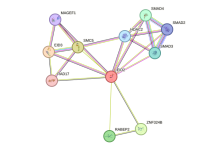Neurological and cognitive function – It is particularly difficult to maintain independence and autonomy after a diagnosis of mental impairment or dementia caused by chronic degenerative brain disease. Dementia is probably the most serious threat facing aging populations due to the increase in mental impairment associated with age. It is therefore of vital importance to public health policy to postpone or prevent the onset of dementia due to cognitive impairment.
Alzheimer‘s disease is the most common clinically defined dementia syndrome, followed by vascular dementia and, less commonly, by other neurodegenerative disorders that are more recently defined.
Dementias with Lewy bodies, frontotemporal dementia, and dementia associated with Parkinson’s disease fall into this last category. Alzheimer’s disease and cerebrovascular disease are closely linked in recent epidemiological research, which has far-reaching implications for preventing both diseases.
As a consequence of a wide range of contributing factors, depression is one of the most common mood disorders among older people. Dementia is also caused by a neurotransmitter imbalance, so it is crucial to distinguish between depression and dementia. For example, dementia is not accompanied by a structural disorder. It is generally accepted that dementing illnesses and depression have a strong genetic background.
Furthermore, nutrients can be either disease-accelerating or disease-protective depending on the gene-environment combination of a disease.
Certain nutrients and toxic substances can damage the brain directly, regardless of genetic predisposition (alcohol, folic acid deficiency) or function (alcohol, vitamin B1, and B12 deficiency). Vitamin deficiencies are associated with mental symptoms like cognitive impairment, emotional irritability, or other neurological signs.
The concept of separating probable direct effects on central nervous system cells from effects that impact circulation and thus nutrient and oxygen supply is useful. A poor diet can impair energy supply, affect neurotransmitter synthesis and intermediary metabolism, enhance oxidative stress or protect against it, and affect the production of cytokines and other signaling molecules. Diet plays a significant role in the development of vascular disease.
So, long-term hypertension and hypertension-related factors (e.g. obesity, high salt intake) and factors associated with vascular disease (e.g. hyperlipidemia, elevated homocysteine levels, diabetes mellitus, smoking) may contribute to the development of these diseases during childhood and their consequences later in life.
Environmental factors play a significant role in atherosclerosis of coronary arteries and brain vessels in large geographical variations. Stroke and cardiovascular disease have declined dramatically over the past three decades, partly as a result of active treatment of risk factors, but more importantly as a result of improved nutrition, especially water-soluble vitamins B and C.
Stroke mortality is fourfold higher in subjects with low plasma concentrations of vitamin C and carotene, demonstrating that concentrations already near low-normal levels increase vascular disease risk. The link between cardiovascular risk and stroke risk and thus vascular dementia has long been recognized. According to Gale et al., stroke is associated with inadequate vitamin C intake and cognitive impairment is associated with stroke.
Strokes and vascular dementia are closely related, as this study shows. Hypertension, smoking, diabetes mellitus, atrial fibrillation, and hyperlipidemia contribute to these conditions as well. Folic acid, along with vitamins B6 and B12, may contribute to vascular dementia by increasing homocysteine levels.
There is a new possibility that low glucose supply may increase glutamate toxicity in brain regions that are vulnerable to glutamate toxicity. Glutamate is cleared from synaptic clefts by astrocytes. When glutamate uptake is impaired due to low glucose supply or impaired intermediary metabolism, for example, due to a lack of vitamin B1 or antioxidants, neurons may become excitotoxic. Read More – Special Herbs for the Brain







